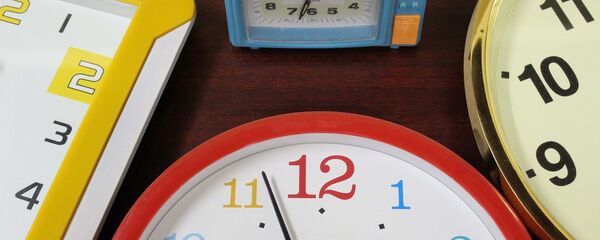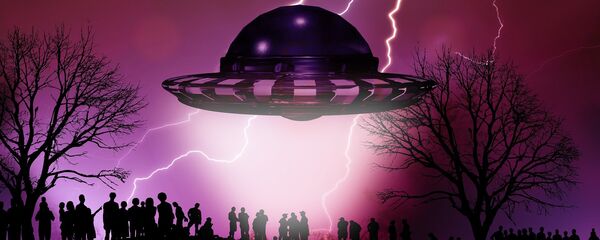Sputnik has discussed whether there's a science behind these findings with Neil Dagnall, Reader in Applied Cognitive Psychology, Manchester Metropolitan University, and Ken Drinkwater, Senior Lecturer and Researcher in Cognitive and Parapsychology, Manchester Metropolitan University.
Sputnik: When we read about there being a science behind why people believe in the paranormal and in all of that you think why kill the magic? What do you think?
Ken Drinkwater: I end up being a compassionate skeptic. I'm skeptical for the most part but I can't explain everything. I think that's the fascination about this particular topic is why do people in general believe in these phenomena, because studies have been done show that 40%-50% of say the UK population, or America, or anywhere in the world tend to have nearly a 50-50 split in terms of what people believe in and what they don't.
Sputnik: It's quite fascinating really because I would say that there are people who fall into the category of "We don't believe in that sort of thing" and there are people that might actually deep in their heart believe, but they won't ever admit it, and then there are, of course, those who openly admit it and don't mind about being ridiculed or laughed at.
Ken Drinkwater: I think those categories are quite a useful way of looking at it. Yes, there are people who are pro-paranormal, they believe in existence of paranormal phenomena.
READ MORE: Aliens Again? Mysterious Object in Brazil Skies Baffles Users (VIDEO)
There's people who are in the middle who have unusual experiences and will tend to sort of say, yes, they could be paranormal but there's also explanations; and there is, of course, the skeptics, who with no matter how much evidence you provide them with, will all always dismiss it out of hand and will always go for conventional scientific explanations. So I think that's quite useful categorisation.
Sputnik: I have to ask, was there any particular encounter that was kind of a trigger point for one of you that made you, perhaps, become more interested in the paranormal?
Ken Drinkwater: I think from my perspective I've not had any particular experience of it, maybe I want to experience it. So that's where I think I've come from where it makes me compassionate. I've spoken to many friends and family members and they've all got some strange stories to tell and that I think influences me. I don't think it's my specific experiences because I don't think I've had one.
Sputnik: It's one thing to be interested in the mystery of the Bermuda Triangle and that sort of thing and there's another falling prey to unscrupulous fortune-tellers and the like, there's a thin line between this…
Neil Dagnall: Yes, that's one of the ways in which we like to view our research on the paranormal is to think of it as being a preferential thinking style. So that while most people would say they're not superstitious within certain circumstances they may have superstitious behaviours or rituals. So with regard to that thin line, yes, there is and that's what's interesting about what entices these people to endorse more radical, extreme views of things for which there's less science.
READ MORE: US Farmer Sells His Ranch After Alleged Extraterrestrial Activity
That's a really difficult thing to quantify because people thinking is quite idiosyncratic in that way. So you have people who are quite strong advocates of scientific thinking who will then have real paranormal weaknesses.
Some people are very quick to make a judgment to decide that they felt or have seen something or they know it is this for certain and that's perfectly fine for their experience. But some people are more down towards the other end and not really deciding what it is, they can't interpret, they've left it, something happened and they can't make sense of it.
Neil Dagnall: Just a nice example that would quantify the question a bit clearer could be for me is conspiratorial thinking. So I'm not really a conspiracist, but there are certain theories that I'm much more open to. So people poke fun at me because I'm always an advocate that I am very doubtful about the Moon landings, but I can always provide lots of reasons for why I don't believe that humans have ever visited the Moon.
The views expressed in this article are solely those of the speakers and do not necessarily reflect the official position of Sputnik.





